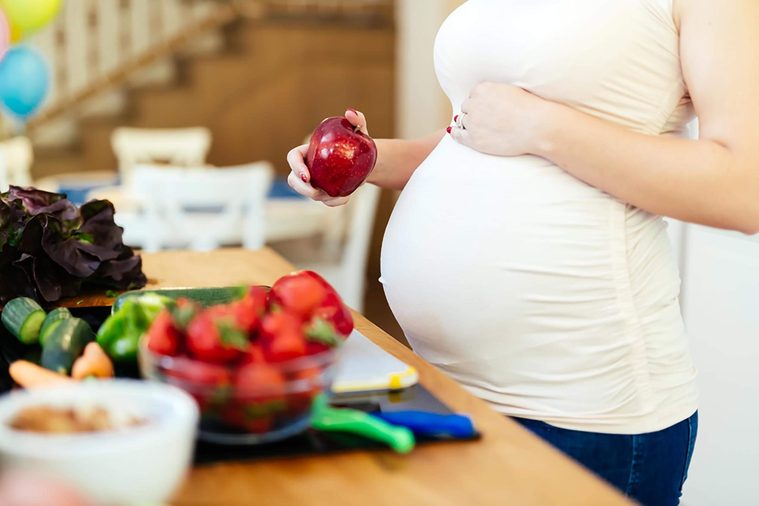Eating These Fruits and Veggies Could Compromise Your Fertility—Here’s Why
Updated: Nov. 28, 2017
The wrong kinds of fruits and veggies can affect your chances of getting pregnant. Yes... really.
 You may think that eating plenty of fruits and veggies would help your chances of getting pregnant, but if you’re eating the wrong kind, it could actually hurt. A recent study, conducted by the Environment and Reproductive Health (EARTH) and published by The Jama Network, found that women who ate more fruits and vegetables that contained high amounts of pesticide residue, were more likely to have a hard time getting pregnant and have a lower chance of a live birth following infertility treatments.
You may think that eating plenty of fruits and veggies would help your chances of getting pregnant, but if you’re eating the wrong kind, it could actually hurt. A recent study, conducted by the Environment and Reproductive Health (EARTH) and published by The Jama Network, found that women who ate more fruits and vegetables that contained high amounts of pesticide residue, were more likely to have a hard time getting pregnant and have a lower chance of a live birth following infertility treatments.
The study looked at over 300 women who were asked to complete a dietary questionnaire and then underwent cycles of assisted reproductive technologies. Researchers determined participants’ intake of high-pesticide and low-pesticide fruits and vegetables using data from the U.S. Department of Agriculture’s Pesticide Data Program.
Here’s what they found:
Women who ate two to six daily servings of high-pesticide fruits had an 18 percent lower probability of clinical pregnancy and a 26 percent lower probability of live birth. Women who ate less than one serving a day of high-pesticide residue fruit and vegetables had better odds.
The risk of pregnancy loss increased with each quartile of high-pesticide fruit and vegetable consumption. The probability was 7 percent for the first (lowest) quartile, 23 percent for the second, 24 percent for the third, and 34 percent for the highest quartile, according to medpagetoday.com.
The women who ate one serving per day of low-pesticide residue fruits or vegetables instead of one high-pesticide serving was associated with 79 percent higher odds of clinical pregnancy and 88 percent higher odds of live birth.
The study’s authors noted that there has been a growing concern that permitted levels of pesticide residues in food defined by traditional toxicological testing may be too high. This concern applies especially for susceptible populations such as pregnant women or infants. The authors also noted that while fruits and veggies are a key part of a healthy diet, they are a hub for pesticide residue exposure in the general population.
Pesticides that are used in agriculture have yielded harmful effects on reproductive health outcomes including decreased fertility, spontaneous abortion, stillbirth, and developmental abnormalities, according to the authors.
Fruits and vegetables that contain high amounts of pesticide residue (called the dirty dozen foods) and that were examined in the study included: strawberries, spinach, green peppers, peaches, plums, potatoes, grapes, string beans, apples, and pears. Low-pesticide produce included peas, lima beans, onions, beans, lentils, avocados, corn, and cabbage. This chart shows other foods that are high in pesticides, too.
So what can you do to protect yourself?
Eat organic! Here’s what you should know about eating organic foods.
You should also read labels and make sure your food is pesticide-free—or, you can reach out to government officials and demand for increased regulation on pesticides.













